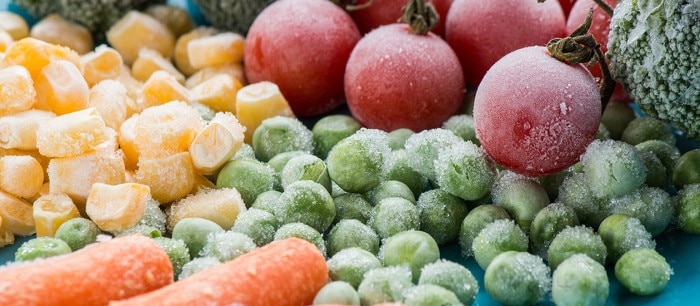MENÚ
ES | EUR
ES | EUR
No se han encontrado resultados
Sugerencias de búsqueda

Oetzi’s Last Meals or How to Make the Storage of Biological Samples Easy
Academia de laboratorio
- Ultracongeladores y accesorios
- Almacenaje
- Ensayo
In September 1991, two tourists were hiking in the Oetztal Alps (Austria) at 3,210 m above sea level, as they found the corpse of a man, which they believed was a recently deceased mountaineer. The body, which was partly frozen in the ice of a glacier, was extracted a couple of days later. The examining archaeologist realized, that the corpse must be more than 4,000 years old. The man from the ice was called “Oetzi” or “Similaun man”, due to the place he was found.
A defrosting of the body made it possible to collect high-quality samples for analysis: even the DNA of the food left in the mummy’s intestines was still in good shape for analysis. Since the body was frozen, it was possible to gain not only DNA, but also intact blood cells and samples of Helicobacter pylori from his gastrointestinal tract. The physio-chemical reactions and enzymatic processes transforming and degrading key components were stopped as the “storage temperature” of Oetzi was low enough.
In modern laboratories, it is not necessary to store samples in a glacier to protect them during short- and long-term storage, since there are different, more convenient options available:
Room temperature storage (15° - 27 °C) is ideal for samples which are fixed in formalin or alcohol. Unfortunately, this storage temperature is not ideal if molecular data needs to be gained from the sample, since DNA and RNA can degrade quickly at room temperature.
Refrigerated storage (2° - 7 °C) is an optimal choice for the short-term storage of biological samples (such as enzymes and antibodies) which will be used quite frequently, since multiple freeze-thaw cycles leading to a loss of sample integrity, can be prevented.
Freezer storage (-20 °C) is the best choice for the short-term storage of samples which are not stable at higher temperatures (such as biofluids like whole blood, serum, plasma, but also PBMC, stem cells nucleic acids).
Ultra-low freezer storage (-80 °C) is one of the best ways for the long-term storage of biological samples, since only ultra-low temperatures prevent the degradation of nucleic acids, proteins, and many other biological molecules.
Cryogenic freezer storage (-150 ° - 190 °C) is an alternative option for the long-term storage of biological samples. Especially when native/active enzymes and viable cells are mandatory, cryogenic freezer storage is the weapon of choice: at these low temperatures, all biological activity stops, leading to a sample which remains in its original state.
In modern laboratories, it is not necessary to store samples in a glacier to protect them during short- and long-term storage, since there are different, more convenient options available:
Room temperature storage (15° - 27 °C) is ideal for samples which are fixed in formalin or alcohol. Unfortunately, this storage temperature is not ideal if molecular data needs to be gained from the sample, since DNA and RNA can degrade quickly at room temperature.
Refrigerated storage (2° - 7 °C) is an optimal choice for the short-term storage of biological samples (such as enzymes and antibodies) which will be used quite frequently, since multiple freeze-thaw cycles leading to a loss of sample integrity, can be prevented.
Freezer storage (-20 °C) is the best choice for the short-term storage of samples which are not stable at higher temperatures (such as biofluids like whole blood, serum, plasma, but also PBMC, stem cells nucleic acids).
Ultra-low freezer storage (-80 °C) is one of the best ways for the long-term storage of biological samples, since only ultra-low temperatures prevent the degradation of nucleic acids, proteins, and many other biological molecules.
Cryogenic freezer storage (-150 ° - 190 °C) is an alternative option for the long-term storage of biological samples. Especially when native/active enzymes and viable cells are mandatory, cryogenic freezer storage is the weapon of choice: at these low temperatures, all biological activity stops, leading to a sample which remains in its original state.
Leer más
Leer menos

